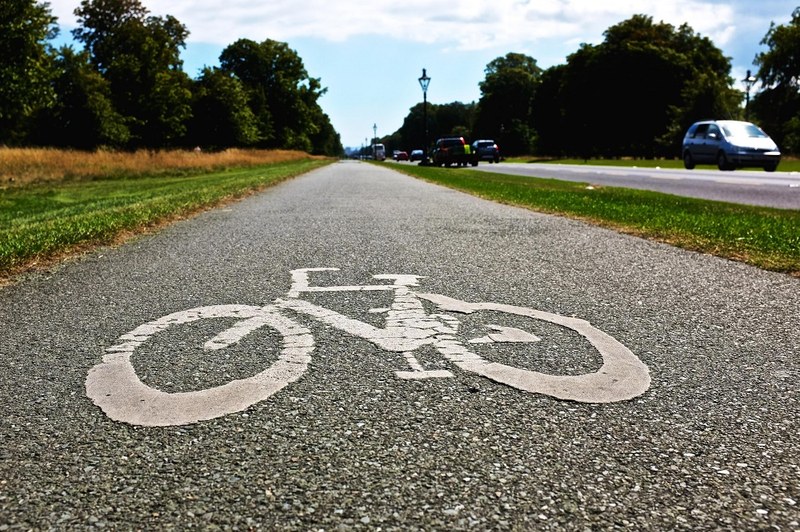Good Practice
Roads on a diet

Remove asphalt, loosen soil, apply new soil: in Arnoldstein/A, the road construction office narrowed the B83 federal road by three metres in 2015. Today it is flanked by a green strip and a cycle path. The same thing has already happened on other roads. In this way, former asphalt deserts can once again absorb water and even serve as habitats. Lower speed limits allow narrower lanes and thus space for unsealing without restricting capacity. By driving at only 80 instead of 100 kilometres per hour, rural roads can be slimmed down by up to 20 per cent and the edges planted. One obstacle is the high cost: between 50,000 and 100,000 euros to unseal one kilometre of road. As the European leader in land consumption, the Austrian government has set itself the goal of reducing the approximately 13 hectares of soil sealing per day to 2.5 hectares by 2030. Unsealing projects like the one in Arnoldstein/A bring the country one step closer to this goal.
More information: www.derstandard.at/story/2000132518507/entsiegelung-wie-aus-strassen-und-parkplaetzen-wieder-natur-wird?ref=rss (de), vcoe.at/news/details/mobilitaetsinfrastruktur-neu-denken-und-neu-nutzen (de), www.ktn.gv.at/Verwaltung/Amt-der-Kaerntner-Landesregierung/Abteilung-9 (de)


